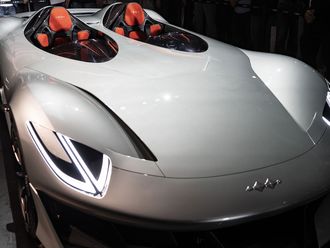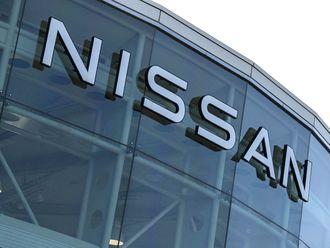Johannesburg: Bain Capital Partners LLC’s decision to walk away from Edcon Holdings Ltd., leaves South Africa’s largest clothing retailer to claw back market share amid weak consumer confidence and a market recently populated by international heavyweights like Hennes & Mauritz AB.
The owner of the Edgars, Jet and CNA chains needs to make up ground ceded while struggling under a debt burden caused by Bain’s 25 billion rand ($1.8 billion, Dh6.61 billion) purchase in 2007. Competitors, including H&M, Woolworths Holdings Ltd. and Inditex SA-owned Zara have all increased market share in South Africa while Edcon has struggled to find funds for basic needs such as the maintenance of store elevators.
“It’s going to be hard for Edcon to halt marketshare losses,” Alec Abraham, senior equity analyst at Sasfin Securities, said. “The easy money has been largely taken by the likes of H&M and Zara.”
Bain gave ownership to creditors in a debt-for-equity swap that reduced Edcon’s debt burden to 6 billion rand from 26.7 billion rand, an amount CEO Bernie Brookes says can be taken care of with cash flow from sales. That marked the end of a nine-year journey for the Boston-based private equity firm that was intended to reap the benefits of a South African economy then growing at more than 5 per cent. The deal was the first foray on the continent for Bain.
While transferring ownership of Edcon to creditors, including Franklin Templeton of the US, has given the retailer breathing room, a turnaround in the present environment is “a big call”, Evan Walker, a fund manager at 361 Asset Management, said. South African retail sales grew at the slowest pace in more than two years in July and Edcon reported a 8.1 per cent drop in first-quarter retail sales to 6 billion rand.
“Considering where the South African market is now, it may be too little, too late,” Walker said.
Bain overpaid for Edcon at “the height on the credit bubble”, Brookes said. Even so, the private equity firm “supported the company through a very rough trading environment,” he said. “They could have simply put the business into business rescue, but they worked with the creditors and management to ensure the future” of 45,000 jobs at the company and 250,000 suppliers, said Brookes, who joined Edcon a year ago from Melbourne-based department store Myer Holdings Ltd.
Mr Price Group Ltd., a South African clothing and household-goods retailer, last month said higher unemployment and low economic growth had significantly dampened consumer confidence and spending. Its share price has slumped 24 per cent this year. Woolworths last month reported that food had outperformed clothing, with the retailer also citing the effect of increased competition from northern hemisphere rivals.
“The South African retailers should be paying attention,” Wayne McCurrie, head of portfolio management at Momentum Wealth Ltd., said. “It has been the easiest game in town to take market share from Edcon, but for the first time since 2007 they have cash flow and money to spend.”
Edcon, which sells international brands such as Topshop, Lipsy and T.M. Lewin in its Edgars stores, has more than 1,500 outlets in southern Africa. The change of ownership means the retailer can shift focus from its finances back to retailing, Brookes said. The company plans to approve more customer applications for credit, clear old stock, increase the level of local sourcing and get rid of 25 of its 37 international brands.
“Edcon’s footprint is sizeable and it’s a prominent retailer, but there is a lot of work to be done to get back in the game,” said Abraham.












